My Escape from North Korea
After growing up under one of the harshest, most isolated regimes on earth, Eunjin Jung, along with her family, risked death to become one of only 146 North Korean defectors living in the United States.
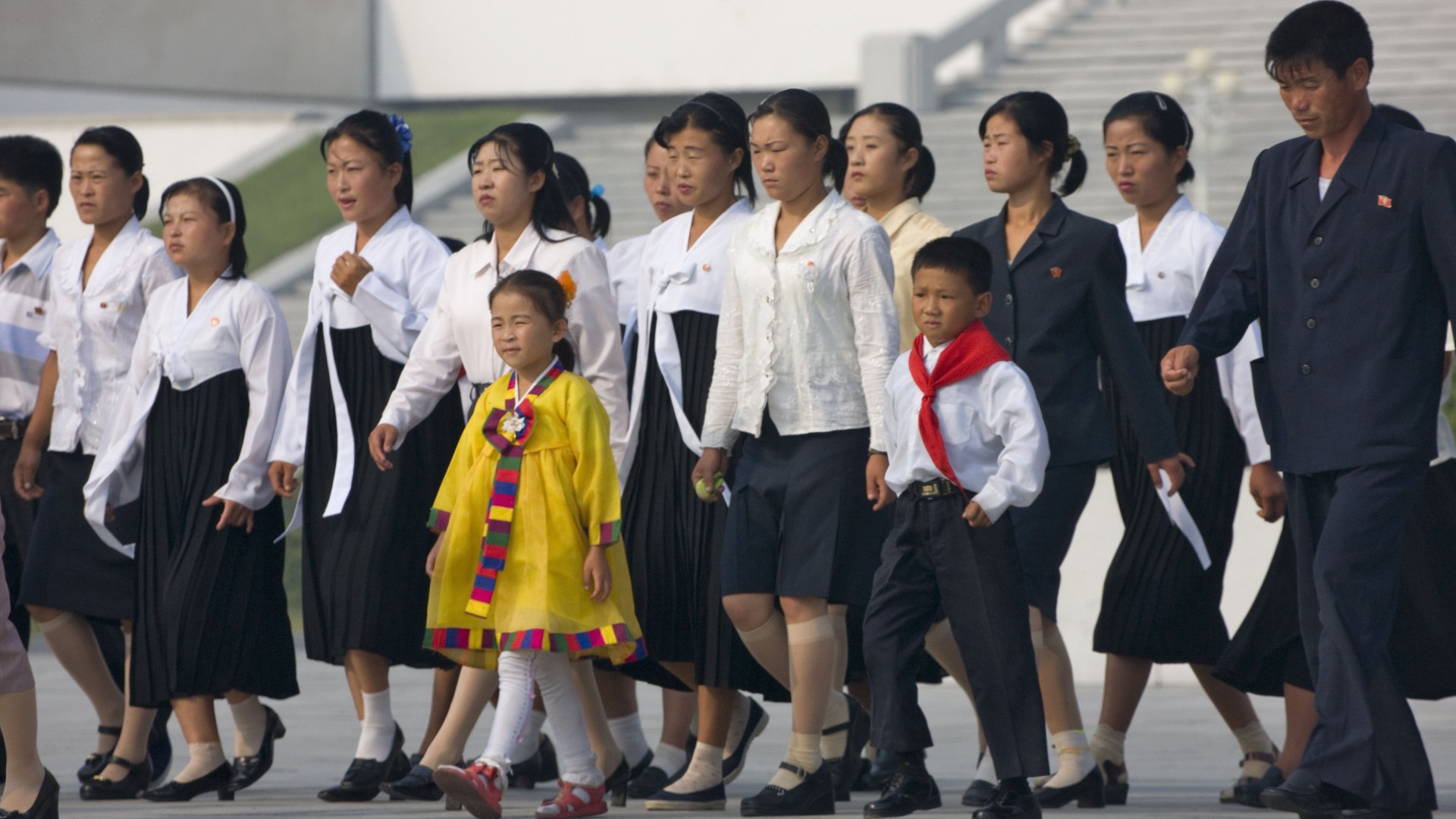
When Eunjin Jung reached the crowd, it was already close to to a thousand people strong. In a grassy field near her small North Korean hometown, three stakes rose from the ground like barren flagpoles. Normally, local children played soccer here, but today it would be a government execution site. At the top of a windswept cliff, the crowd jostled one another for a better view of the field below. As the executioner read the names of the three condemned men into a megaphone, Jung, a recent high school graduate, looked up in shock: she recognized the second name. There must be some mistake, she thought, terrified. They're not really going to shoot my uncle—are they?
Jung, now in her early 30s, was born under the brutal leadership of Kim Il Sung, the grandfather of current dictator Kim Jong Un. North Korea's nuclear program was recently in the spotlight, when the country threatened South Korea and the United States, but a human rights crisis has been raging there for decades. After the Soviet Union (which North Korea, without much farmland of its own, relied on for subsidized trade and aid) collapsed in 1991, the North Korean government refused to risk destabilizing its choke hold over its people by opening up its economy to international trade. Instead, it has built one of the most isolated regimes on earth, allowing only state-run radio, TV, and internet so its citizens can't discover that the suffering and repression they experience—no civil rights, no freedom of speech or religion, and widespread torture and public executions—aren't the norm elsewhere. Out of an estimated total population of 25 million, up to 200,000 north Koreans are currently in political prison camps; 400,000 more have already died there. And even after the four-year-long famine ended in 1998, in which 900,000 to 2.4 million people starved to death, access to food is still a daily problem.
"Citizens can't discover that the suffering and repression they experience aren't the norm elsewhere."
"Every day after school, I'd go to the nearby mountains and hunt for potato seeds to eat," says Jung. "Only the kids whose families had money and food could play with their friends." Even the middle class can go hungry: Although Jung's father had a stable military job, her five-member family didn't have enough food to go around, especially since most of their money went to caring for Jung's sick mother. The thin porridge of rice, corn, and potatoes her family scraped together from government rations barely got them through the harsh winters that were often made worse when the electricity cut out, a frequent occurrence.
Still, Jung didn't know any other way of life. Because the government controls all public information (there was even a speaker in their home that broadcast a steady stream of government propaganda), and she had no reason to doubt its constant message that they lived in the world's safest, happiest country. At school and at home, Jung was taught to worship her country's leaders as gods and suspect everyone else, including her friends and neighbors, as potential threats to the regime. Each week, all North Koreans had to attend hours-long "self-criticism sessions" in government-assigned groups. "I had to write down all of my sins, like failing to clean the house well enough or neglecting my homework, and then publicly announce them to everyone," says Jung. These were often followed by "mutual-criticism sessions," where friends and family members were expected to inform one another to the group (and to the government) and suggest ways to improve. "The sessions made it impossible to forget that someone was always watching," says Jung.
One evening shortly after she graduated from high school, Jung walked into her house after her shift as a warehouse guard to find her parents in the middle of a tense discussion: Jung's uncle had been arrested for selling scraps of metal and sentenced to prison. But many North Koreans resorted to under-the-table activities to feed their families; it was simply a part of life. so a few weeks later, when Jung heard the executioner read her uncle's name, she was shocked that he'd be killed for the infraction—and her stomach filled with dread. Her uncle's demise would doom her, too. Within North Korea's sociopolitical system, each citizen's perceived loyalty is based on her family background and determines every aspect of life: where she can live, work, go to school, and even whom she can marry. In other words, one "criminal" in the family means that every other member is guilty by association. Jung looked around at the crowd surrounding her: Does anyone realize I'm in his family? she wondered. Then the shooting began.
Her uncle's execution erased Jung's social status, so 10 years later when she met Kyungsoo Kang, another low-status coworker at her job (one of his relatives had defected to south Korea), Jung reasoned that they could build a life together. They married shortly after and had a daughter, Mina.
Not long after Mina was born, Kang came home from work one day ashen with fear. "I have to report to the police," he said urgently. "I think they caught me on the phone." (A few days prior, Kang had called his family in South Korea. International calls are illegal in North Korea, but some opportunists sneak in cell phones from China and charge citizens to make a brief call.) Before Jung could say good-bye, Kang hurried out of the house.
Stay In The Know
Get exclusive access to fashion and beauty trends, hot-off-the-press celebrity news, and more.
Terrified that her husband was being tortured, Jung walked to the police station the next night with Mina, where she made a deal with the officers: In exchange for Kang's freedom, Jung would give them most of her salary for years to come. "It was a terrible arrangement," she says. "But I had no choice."
As the trio walked home, Jung was overcome with despair. There's no hope of life getting better for us now, she thought. Since her uncle's execution, the government had kept close watch over her family; now the surveillance would only intensify. Jung knew she'd never be able to set aside any income for her family. "I'd hoped that things might be better for Mina," Jung says. "But at that moment, I realized her future would be as empty as mine, unless I did something. Even if we died trying, we had to leave North Korea. Lots of people had escaped; maybe we could, too."
"Even if we died trying, we had to leave North Korea."
But despite his family's assurances that life was better outside of North Korea, for Kang, the prospect of risking his life for the unknown was too frightening to consider. "Let's wait," he begged. "It might be safer to go in the future." Jung was adamant that they had no other choice. "We're starving!" she argued. "Do you think things are ever going to change?"
Unbeknownst to Kang, Jung called his relative. Together, they made a plan: His family in South Korea would transfer money to a Chinese agent who would smuggle the family to freedom. (The cost of a defection broker varies wildly, but typical fees range from $1,500 to $7,500; average annual salary in North Korea is $1,000.) Jung was determined to take the huge risk. "There was a possibility we might not make it," she recalls. "But I had to try for Mina."
Defectors, so-called because they forfeit allegiance to the North Korean government merely by leaving the country, almost always travel in one direction: north, toward the Tumen River that runs between North Korea and China. (The border with South Korea is one of the most heavily militarized in the world, and, as such, is impossible to cross.) The morning of her escape, months after her initial phone call to South Korea, Jung persuaded her husband to walk north with her and Mina. Kang still didn't know about her plan, so Jung said good-bye to her parents and siblings alone. While she desperately wanted to carry a photo of her relatives, Jung knew that if she was caught, a single photo could send them to a prison camp. As they drew closer to the border, Jung told Kang the truth: "Mina and I aren't going home," she said. "We're crossing. Will you come with us?" Without time to let fear sink in, Kang agreed.
The Tumen River fluctuates from 65 to 785 feet wide, and it's not too deep to cross in a few minutes by wading or swimming, but if defectors are caught, they risk execution, torture, or imprisonment. A baby's cry could alert the border guards, so parents sometimes drug their children with opium or alcohol to keep them quiet. Instead of doing that, Jung put her life in a 2-year-old's hands. Huddled on the riverbank, she looked her daughter in the eye. "If you make a noise, Mommy and Daddy are going to die," she said simply. "Do you understand?" Mina nodded, and Jung hoisted the little girl onto her back. Together, they stepped into the freezing water onto the slippery rocks. As Kang rushed alone across the river and into China, Jung and Mina struggled not to fall into the waist-high tide.
"At that moment, everything I had been taught about Kim Il Sung and Kim Jong Il being gods just disappeared," Jung says. "It went out of my system. I decided to forget them and make a new life." She regained her balance and carefully made her way through the water with Mina. They stepped onto the far bank and crawled through a hole in a metal fence. They had made it to China.
With the help of their broker, Jung and her family began a 2,000-mile journey across China—by bus, car, and foot—to Southeast Asia. Days later, they finally arrived at a safe house operated by liberty in North Korea, a nongovernmental organization that helps North Korean defectors. For the first time in her life, Jung knew she was safe. "I felt happy," she says of her time at the shelter, where her family gorged on peanut butter and jelly sandwiches. "But the memory of the family I left haunted me every day." One afternoon, she looked out through a window of the shelter and noticed a group of stray dogs eating leftovers. In North Korea, she would have done anything for a meal like that.
"The memory of the family I left haunted me every day."
After a few months at the shelter, her family boarded an airplane to the United States, where they were granted refugee status. (Although North Korean propaganda portrays Americans as violent monsters, the friendly American employees at her shelter dispelled Jung's fears about the U.S.) "I don't want Mina to have the same scars that I have," Jung says of her decision to move to an unfamiliar country. "I want her to flourish."
The family moved into a mobile home behind a Korean church in the western United States, and Jung began working 12-hour shifts as a dishwasher six days a week. Life isn't easy; she makes ends meet with food stamps. But those are minor challenges compared with what she's overcome. She dreams of becoming a seamstress and finds support in her newfound Christian faith. But it's the small freedoms that have surprised Jung the most, like the option to choose from a hundred varieties of canned soup, the right to own a cell phone, and the opportunity to sit behind the wheel of a car. "In North Korea, you don't see women driving," she says. "But I did it. I was circling around the parking lot, and all at once this breath of freedom came. I was just so happy." Mina, now 3, watches cartoons in English; Kang hopes to find a job as a chef. But every time Jung sees a waiter throw away plates of leftover food, her chest still tightens a bit—she thinks about her family in North Korea every day. "Someday, maybe, I will see them again," she says. "If we use the same energy and mentality here that we used in North Korea just to survive, then we could be anything."
Editor's note: Because the North Korean government has a history of retaliating against defectors' families, the identifiable details of this story have been reviewed by Liberty in North Korea, a non-governmental organization that works with North Korean defectors.
-
 The Viral Beaded Lobster Bag Has Reached Its Boiling Point
The Viral Beaded Lobster Bag Has Reached Its Boiling PointA $24.99 purse from T.J. Maxx has sparked a nationwide scavenger hunt.
By Sara Holzman
-
 Coco Gauff Serves the New Balance x Miu Miu Collab to Beat
Coco Gauff Serves the New Balance x Miu Miu Collab to BeatShe'll debut it on the court at an upcoming tournament.
By Halie LeSavage
-
 Sarah Ferguson Made a Cheeky Comment to Princess Anne's Husband During Rare Easter Appearance With Prince Andrew
Sarah Ferguson Made a Cheeky Comment to Princess Anne's Husband During Rare Easter Appearance With Prince AndrewThe Duchess of York showed her fun-loving personality outside St. George's chapel in Windsor.
By Kristin Contino
-
 36 Ways Women Still Aren't Equal to Men
36 Ways Women Still Aren't Equal to MenFeatures It's just one of the many ways women still aren't equal to men.
By Brooke Knappenberger
-
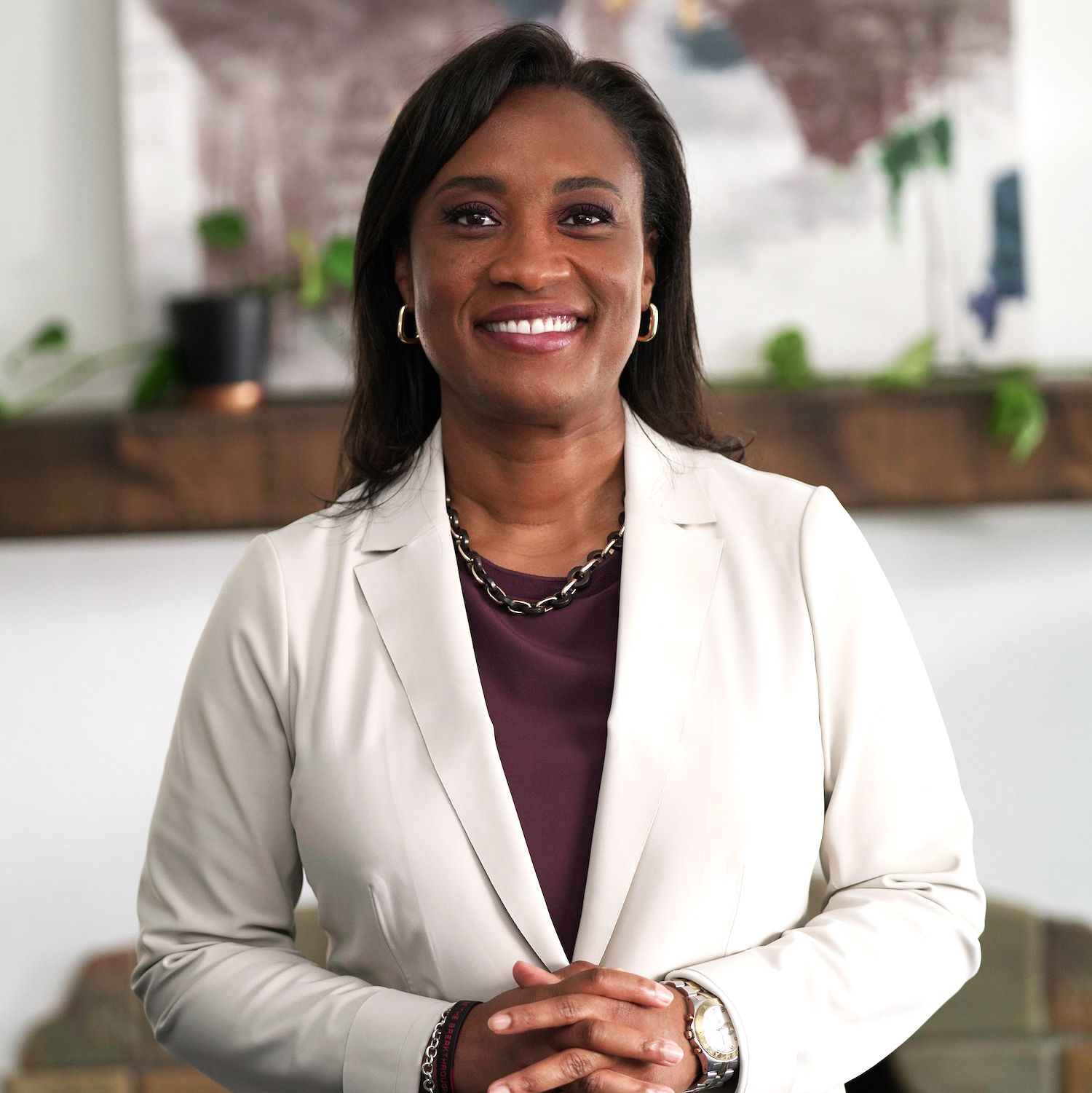 EMILY's List President Laphonza Butler Has Big Plans for the Organization
EMILY's List President Laphonza Butler Has Big Plans for the OrganizationUnder Butler's leadership, the largest resource for women in politics aims to expand Black political power and become more accessible for candidates across the nation.
By Rachel Epstein
-
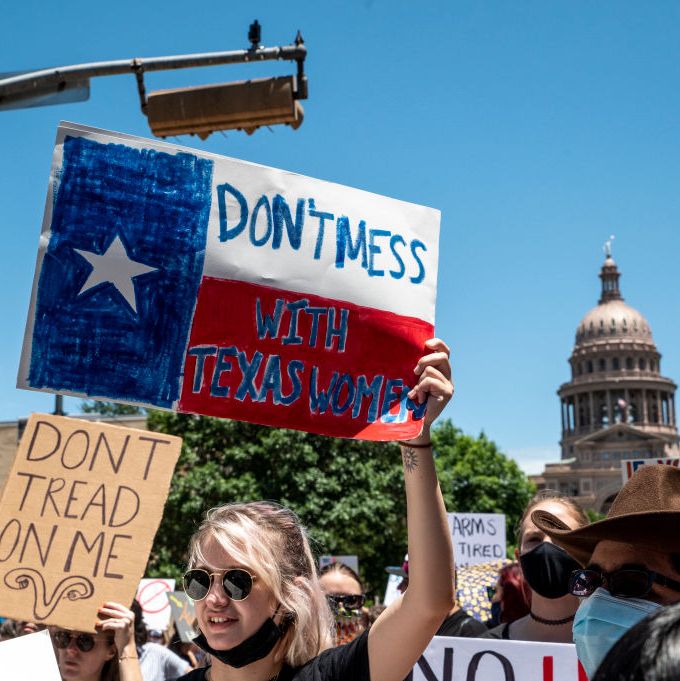 Want to Fight for Abortion Rights in Texas? Raise Your Voice to State Legislators
Want to Fight for Abortion Rights in Texas? Raise Your Voice to State LegislatorsEmily Cain, executive director of EMILY's List and and former Minority Leader in Maine, says that to stop the assault on reproductive rights, we need to start demanding more from our state legislatures.
By Emily Cain
-
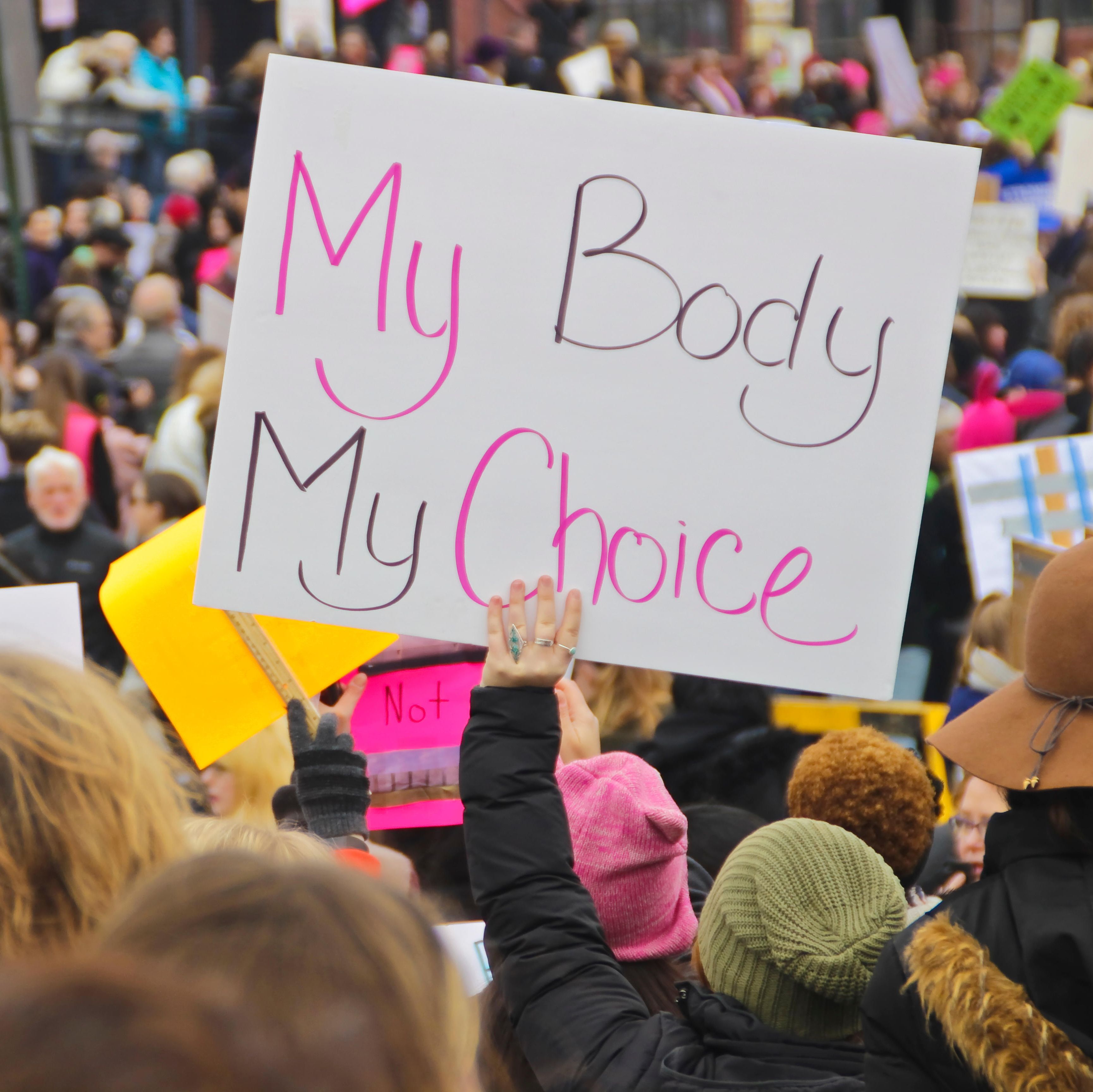 Your Abortion Questions, Answered
Your Abortion Questions, AnsweredHere, MC debunks common abortion myths you may be increasingly hearing since Texas' near-total abortion ban went into effect.
By Rachel Epstein
-
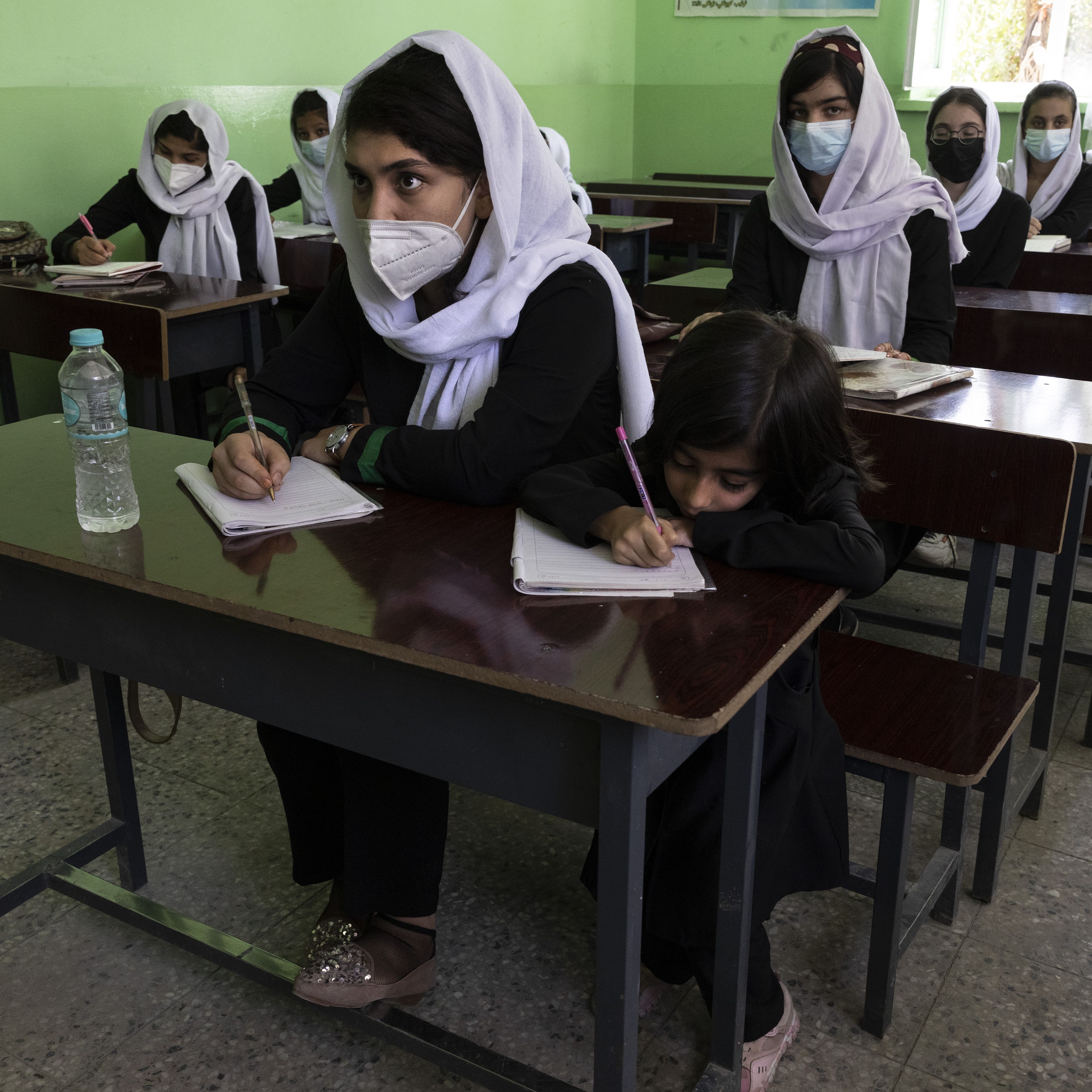 The Future of Afghan Women and Girls Depends on What We Do Next
The Future of Afghan Women and Girls Depends on What We Do NextBetween the U.S. occupation and the Taliban, supporting resettlement for Afghan women and vulnerable individuals is long overdue.
By Rona Akbari
-
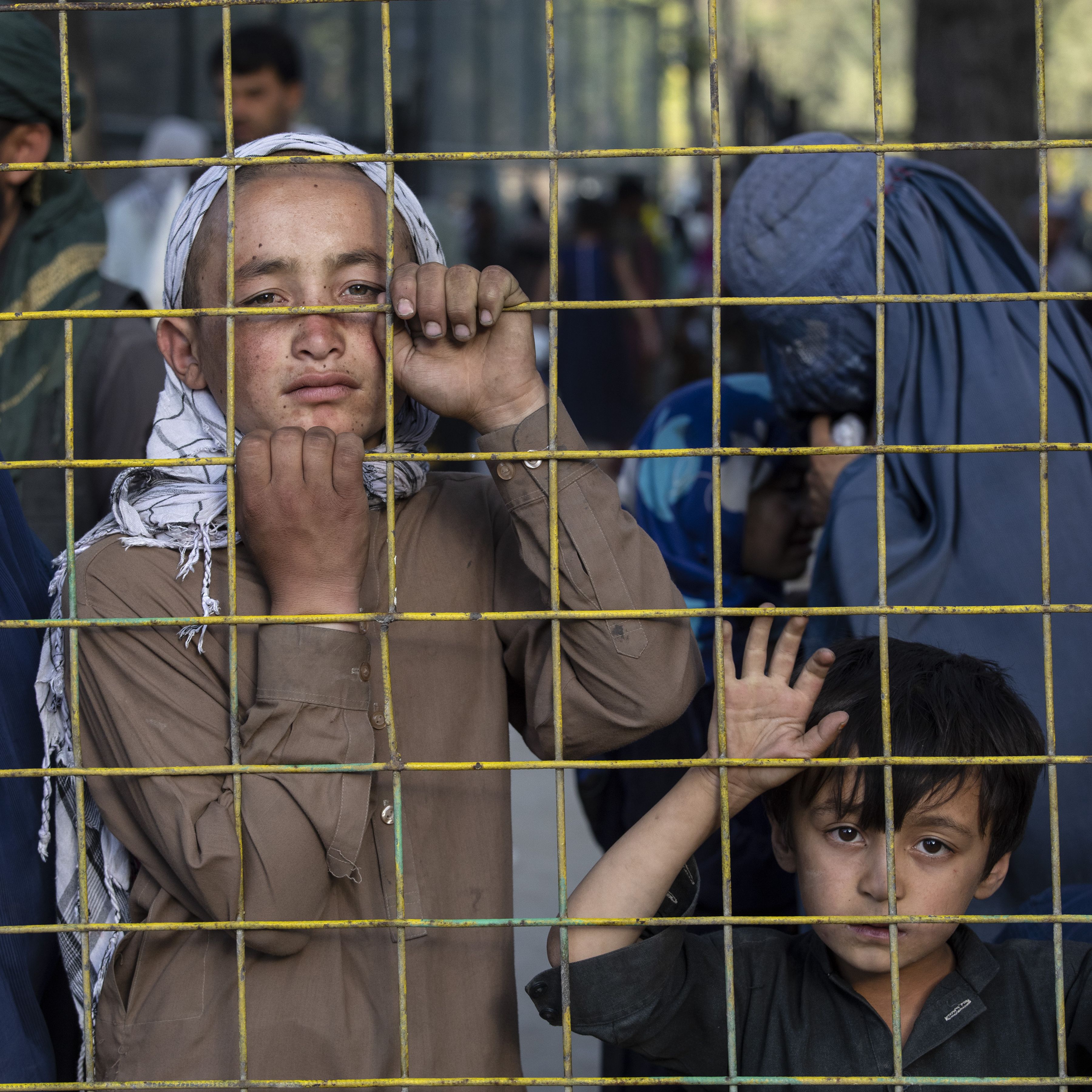 How to Help Afghanistan Refugees and Those Who Need Aid
How to Help Afghanistan Refugees and Those Who Need AidHow To With the situation rapidly evolving, organizations are desperate for help.
By Katherine J. Igoe
-
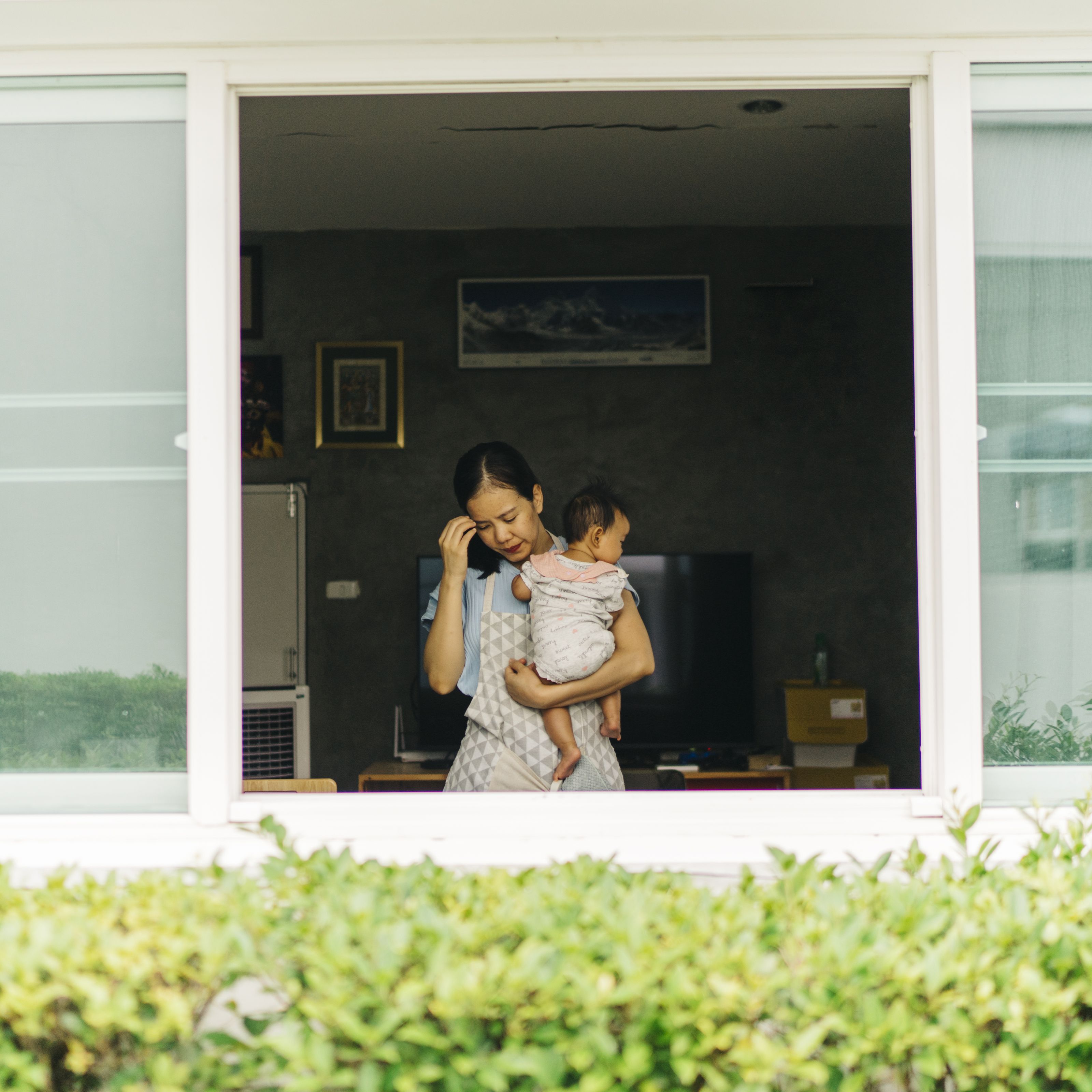 It’s Time to Give Domestic Workers the Protections They Deserve
It’s Time to Give Domestic Workers the Protections They DeserveThe National Domestic Workers Bill of Rights, reintroduced today, would establish a new set of standards for the people who work in our homes and take a vital step towards racial and gender equity.
By Ai-jen Poo
-
 The Biden Administration Announced It Will Remove the Hyde Amendment
The Biden Administration Announced It Will Remove the Hyde AmendmentThe pledge was just one of many gender equity commitments made by the administration, including the creation of the first U.S. National Action Plan on Gender-Based Violence.
By Megan DiTrolio